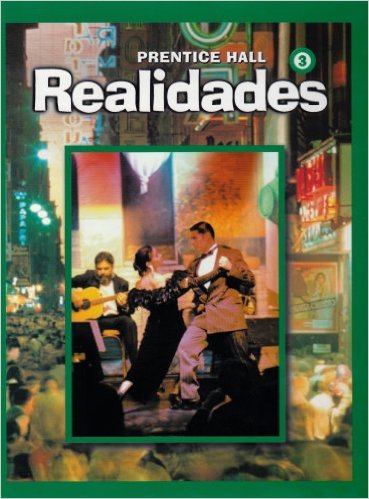
All Solutions
Page 227: Actividad 34
The present perfect subjunctive is used when we are talking about an action that happened before the action of the main verb.
It is formed with the present subjunctive of the verb “haber” + past participle.
The past participle of the “-ar” ending verbs is formed by adding “-ado” to the stem. With “-ir/-er” ending verbs, the past participle is formed by adding “-ido” to the stem.
Also, there are many verbs that have an irregular past participle.
With the verbs that in the infinitive have two vowels don’t forget to put the accent marks on the “-í”.
From the context of the sentence, we know we will choose the verb “decidir”.
The subject is “ustedes” (you). Therefore we will use the third person plural present subjunctive form of the verb “haber” (hayan). The past participle of the verb “decidir” is formed by adding “-ido” to the stem (decid+ido).
For the second blank, we will choose the verb “tener”. The subject is they. Therefore we will use the third person plural present subjunctive form of the verb “haber” (hayan). The past participle of the verb “tener” is formed by adding “-ido” to the stem (ten+ido).
For the third blank, we will choose the verb “juntar”. The subject is “un voluntario” (a volunteer). Therefore we will use the third person singular present subjunctive form of the verb “haber” (haya). The past participle of the verb “juntar” is formed by adding “-ado” to the stem (junt+ado).
For the fourth blank, we will choose the verb “colaborar”. The subject is “yo”. Therefore we will use the first person singular present subjunctive form of the verb “haber” (haya). The past participle of the verb “colaborar” is formed by adding “-ado” to the stem (colabor+ado).
For the fifth blank, we will choose the verb “organizar”. The subject is “nosotros” (we). Therefore we will use the first person plural present subjunctive form of the verb “haber” (hayamos). The past participle of the verb “organizar” is formed by adding “-ado” to the stem (organiz+ado).
Since we have “comentarios”, for the sixth blank, we will choose the verb “escribir”. The subject is “ustedes” (you). Therefore we will use the third person plural present subjunctive form of the verb “haber” (hayan). The past participle of the verb “escribir” is irregular (escrito).
And lastly, for the seventh blank, we will choose the verb “enviar” (send).
The subject is “ustedes” (you). Therefore we will use the third person plural present subjunctive form of the verb “haber” (hayan). The past participle of the verb “enviar” is is formed by adding “-ado” to the stem (envi+ado).
Haven't found what you were looking for?
Search for samples, answers to your questions and flashcards

